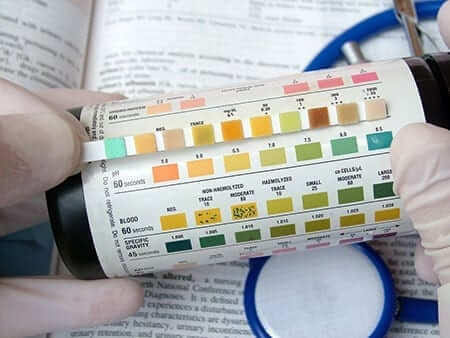Some people are admitted to the hospital for diabetic ketoacidosis (DKA) prior to being diagnosed with type 1 diabetes. This serious condition is often how people learn they have diabetes type 1. Learn more about ketoacidosis and why it is so common in type 1 diabetes.
What is Ketoacidosis?
- Ketoacidosis happens when ketones (also known as fatty acids) are produced as the body burns muscle and fat instead of glucose for energy. DKA develops in people with type 1 diabetes when their blood sugar gets very high. People with type 1 diabetes cannot produce insulin and must take insulin to avoid complications such as ketoacidosis. If a person is hospitalized with DKA, they are given tests to measure the levels of glucose and electrolytes in their blood. The tests taken during a hospital stay might be used to diagnose type 1 diabetes.
- Symptoms of ketoacidosis can include confusion, labored breathing, thirst, dry mouth, vomiting and dehydration. Other symptoms may include flushed face, dry skin, fruit-smelling breath, headache, muscle aches, stomach pain and frequent urination for a day or more. If you have these symptoms, go to an emergency room immediately. If DKA goes untreated, the person may go into a coma. DKA is diagnosed with blood and urine tests. Treatment may include intravenous fluids if the patient is dehydrated and insulin therapy to suppress the production of ketone bodies.
- Ketone testing can be done in people with type 1 diabetes to screen for ketoacidosis. Ketone testing is done by using a blood or urine sample. Testing is typically done during an illness such as stroke, heart attack, pneumonia or when a person has vomiting and nausea. Ketone tests might be ordered when blood sugars are higher than 240 mg/dl in diabetes type 1. Ketone testing is usually done during pregnancy.
- Other tests for ketoacidosis include blood glucose tests, blood pressure measurement, and a potassium blood test. It should also include an arterial blood gas test and amylase blood test. DKA can affect the results of certain other tests including urine pH, phosphorus blood test, CO2, sodium blood test, and magnesium blood test. Results can be off due to ketones.
- Patients can also use ketone strips to perform a urine test at home. If the results show the presence of ketones, check your blood sugar with a glucose monitor and report the results of both tests to your doctor immediately. In most instances you will be sent to the hospital. The hospital staff will check for infections and usually administer intravenous fluids and insulin.
- It is crucial to seek medical attention for ketoacidosis right away. Possible complications including cerebral edema (fluid buildup on the brain), heart attack, and kidney failure. People with type 1 diabetes are already more prone to multiple health and kidney problems so DKA must be treated immediately.
- You can help prevent DKA when you know the symptoms and signs. Be aware of when to test for ketones especially when you are sick. If you use an insulin pump frequently check to ensure the insulin is flowing through the tubing and the tubing is not blocked, kinked or disconnected from the pump. Always follow diabetes self-management instructions from your health care team. If there are changes in your routine such as travel or exercise, report them to your doctor and ask if your medications need to be adjusted.
Ketoacidosis can be a preliminary sign of type 1 diabetes or a complication associated when you have type 1 diabetes. Knowing the signs can help you prevent a health care crisis. Test your blood sugar and urine regularly and report inconsistencies to your health care team promptly.













Leave A Comment